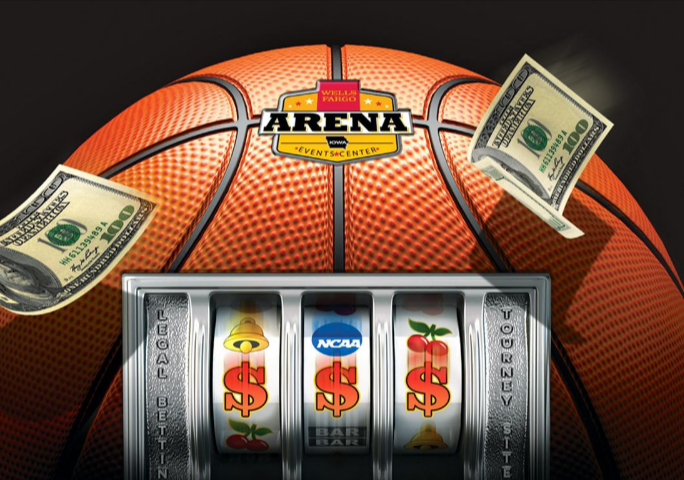In a bold shift that’s shaking up college sports, the NCAA’s Division I committee has approved a rule letting athletes and staff bet on professional games. This change could redefine how young players handle gambling, but it’s not final yet. Dive in to see why this matters and what’s next.
The NCAA Division I Administrative Committee made headlines by adopting a proposal that lifts the ban on betting for student-athletes and athletic department staff on professional sports. This means college players could soon place wagers on NFL games or NBA matchups without facing penalties from the NCAA.
This decision marks a major pivot from long-standing rules that barred all forms of sports betting to protect the game’s integrity. It comes after months of review, starting back in 2023, when the NCAA began looking at how legal betting across most U.S. states has changed the landscape.
Sources close to the matter, as reported in recent updates, expect Division II and III to follow suit later this month. If they do, the new rule kicks in on November 1, 2025.
The move aims to ease the burden on university compliance offices. These teams have struggled to police bets on pro sports, which often lead to minor infractions with light punishments.
Why the NCAA Made This Move
Illinois athletics director Josh Whitman, who chairs the Division I Administrative Committee, explained the reasoning clearly. He said the group remains worried about gambling risks but wants to treat student-athletes more like their non-athlete peers on campus.
“This change allows the NCAA, the conferences, and the member schools to focus on protecting the integrity of college games while, at the same time, encouraging healthy habits for student-athletes who choose to engage in betting activities on professional sports,” Whitman stated.
The review process highlighted real challenges. For instance, with sports betting now legal in 38 states and Washington, D.C., according to a 2024 report from the American Gaming Association, enforcing a total ban has become tough. Compliance staff often deal with cases that distract from bigger issues like betting on college events, which remains strictly forbidden.
One key factor? Data from the NCAA’s own studies showed that violations for pro sports bets rarely threatened game fairness. A 2023 internal analysis found most such cases involved small amounts and no ties to college competitions.
This isn’t just about easing rules. It’s a response to a changing world where betting apps are everywhere, and young adults bet responsibly in many places.

Potential Impacts on Athletes and Schools
College athletes stand to gain more freedom under this rule, but it comes with caveats. They still can’t bet on any college sports, including their own teams or others, to avoid conflicts of interest.
Schools will need to step up education on responsible gambling. Many universities already run programs teaching about addiction risks, and this change could boost those efforts.
Here’s how the rule might play out in practice:
- Athletes could bet on pro events like the Super Bowl without NCAA backlash.
- Staff members, from coaches to trainers, get the same leeway.
- Penalties for college betting stay harsh, including possible suspensions or eligibility loss.
Experts predict this could reduce underground betting. A study by the University of Nevada, Las Vegas, from 2024 estimated that 20% of college students bet illegally, often on pro sports. Allowing it openly might bring those activities into the light, making oversight easier.
For athletes, this levels the playing field. Non-athletes on campus have bet legally for years, so why not them? It acknowledges that these young adults are adults, capable of making choices.
Still, critics worry about addiction. The National Council on Problem Gambling reported in 2025 that sports betting calls to their hotline jumped 30% among 18-24-year-olds since 2023.
One short point: This rule doesn’t apply yet, so athletes should hold off until November.
Broader Context in College Sports
This betting shift fits into a wave of NCAA reforms. Just last year, the organization allowed athletes to earn from their name, image, and likeness, transforming amateur sports.
Betting legalization exploded after a 2018 Supreme Court decision struck down a federal ban. Now, with billions wagered annually, the NCAA is adapting.
| Year | Key NCAA Betting Milestone |
|---|---|
| 2018 | Supreme Court legalizes sports betting in states. |
| 2023 | NCAA starts policy review amid rising legal bets. |
| 2025 | Division I approves pro sports betting for athletes and staff. |
Data from NCAA records shows this table of progress. It’s part of a push to modernize rules while guarding against scandals, like past point-shaving cases.
Athletes in high-profile sports like football and basketball might feel the biggest impact, as they often face intense scrutiny.
Challenges and What’s Next
Not everyone cheers this change. Some coaches fear it could blur lines, even if bets are only on pro sports.
Division II and III votes are crucial. Their meetings happen soon, and approval seems likely based on insider talks.
If passed, the NCAA plans to roll out guidelines quickly. Schools must update policies by November 1.
This could influence pro leagues too. The NFL and others have strict betting rules for players, but colleges are charting their own path.
In the end, this rule reflects a maturing view of college sports. It treats athletes as responsible adults in a betting-friendly era, while fiercely protecting college games from any hint of impropriety. As the landscape evolves, it promises to keep the focus on fair play and athlete well-being.
Leave a Reply